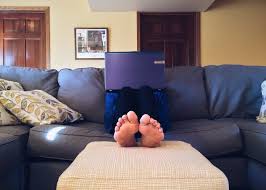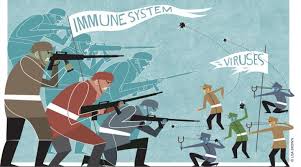|
How Acupuncture Treats Neck Pain
TCM views all health problems holistically. We can not only treat the symptoms of neck pain and stiffness, often providing relief of sore neck and muscle spasm in neck, but will carefully consider the whole picture of symptoms and lifestyle habits that are contributing factors. We will look for the root cause of neck pain and address that, so that the pain does not return again and again. An acute condition that involves neck strain and soft tissue injury will be treated differently than a chronic condition related to the vertebrae and discs. Patients who are new to acupuncture may be surprised when their practitioner begins inserting needles, and none of them are going into the area that hurts–in this case, the neck. But acupuncture often does not work in such a direct way. To treat neck pain, a qualified acupuncturist might be working on points in the abdomen that reduce inflammation throughout the body while strengthening Qi and Yang energy. Acupuncture treatment is sometimes enhanced by the additional use of electrical stimulation. Wide-ranging studies have shown that many people feel an immediate improvement after the very first session, with even more significant positive effects on pain and mobility accumulating after several treatments. At SFIM we are trained in other modalities that can also be incorporated into the treatment regimen, especially forms of therapeutic massage, Kineso-taping, Dry Needling, and Graston Technique Acupuncture is safe, natural and has no such side effects—unlike many of the medications often used to treat pain. TCM Herbs for Chronic Neck Pain Chronic neck pain conditions involving radicular (radiating pain) symptoms can be alleviated by the use of specific Chinese herbal formulas. Chinese herbs, both in oral and topical formulations, have been shown to be better at relieving neck pain stemming from degenerative disc disorders or cervical radiculopathy (pinched nerves or nerve damage) than NSAID type medications. Topical pain relievers such as liniment (woodlock, or Huo Luo oil) or analgesic patches can be very effective for pain relief, with no side effects. Top 5 Tips for Neck Pain Relief Besides acupuncture treatment, you can also get some stiff neck relief by improving your posture, sleeping position and by practicing neck pain exercises. Here are some of the best neck pain remedies you can achieve through self care at home.
4 Comments
ACUPUNCTURE AND IMMUNITY
Can acupuncture boost your immune system? The answer is not surprising: yes, it can! In some cases, especially in China, acupuncture therapy is prescribed for immune deficiency disorders such as allergies, autoimmune diseases, chronic fatigue, psoriasis, and cancer. Since inflammation is the natural pathological progress of many diseases, many argue that the strength of acupuncture in boosting immune function lies in its ability to reduce inflammation. Studies have also shown that acupuncture can affect a rise in immune interferon levels. Interferons are the chemical messengers used by the immune system to communicate between cells. The acupuncture point named Stomach 36 (ST36) is well known for its immune-boosting effects. Stimulation of this point (located just below the kneecap on the outer part of the leg) is believed to regulate the activation of Natural Killer cells (NK cells) known for their ability to attack and kill cancer cells. The human immune system consists of the white blood cells produced by bone marrow; antibodies made in the thymus and tonsils; and the spleen and the lymphatic system, which removes dead cells and materials from the system. These systems interact and communicate to coordinate the body’s defense system. First, white blood cells detect foreign particles in the body. In response, the body launches a defense in the form of fighter cells and antibodies. It keeps a record of infections, so future immune reactions are faster and more effective. If any of these aspects are weakened due to illness or bad lifestyle choices, our immune system is compromised. Research and scientific evidence from clinical trials show that acupuncture can regulate immunity and promote anti-inflammatory effects. In one study, early stimulation of acupuncture point ST36 resulted in an increased concentration of the antibody SIgA, as well as T-lymphocytes in the intestinal mucosa. It resulted in lowered mortality due to sepsis. In conjunction with moxibustion, acupuncture helped restore the balance between immune cell subsets during treatment of Crohn’s disease patients (Liang et al. 2015). Additionally, prevention and early treatment of disease is a big part of TCM. Acupuncture is often used before the onset of an illness to boost immunity, thereby potentially bypassing disease altogether. WHAT TO EXPECT FROM ACUPUNCTURE TREATMENT Your first treatment with an acupuncturist may last for up to an hour. We will carefully evaluate your particular case and decide on the correct combination of acupuncture points to stimulate and the duration of the treatment. A total of 361 acupuncture points are located all over the human body, including the hands, feet, and ears, where points are more concentrated. Follow-up treatments tend to be shorter, typically between 20-30 minutes, and may be necessary depending on the specific case. The skin is disinfected with alcohol before a very thin sterilized needle or disposable needle in inserted precisely at each specific acupuncture point. Once inserted, the acupuncturist may adjust the position of the needles, heat them, or even electrically energize them for an enhanced effect. Treatment is not painful or uncomfortable, although a slight prick may be felt on insertion, followed by tingling or warming around the site. photo credit - genengnews.com We want to share with you below what we are doing to help maintain a healthy and safe environment, in addition to following guidelines from the CDC and regional public health agencies.
COVID-19 and Traditional Chinese medicine Traditional Chinese medicine has played a role in fighting viruses and pandemics in its long history. SARS, H1N1 and more recently, COVID-19. Hospitals in China have integrated the use of Chinese medical herbology with Western medicine in its fight of COVID-19. Chinese herbal medicine helps to strengthen the immune system and it not only assists in mild cases, but more severe cases as well. Click Here to watch a short video |
Archives
December 2023
Categories
All
|
Proudly powered by Weebly



 RSS Feed
RSS Feed